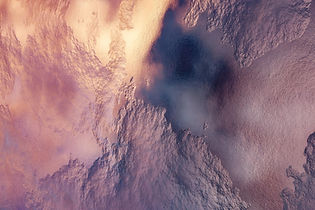
A BIT ABOUT US
A Speculative Fiction Undergraduate Magazine
Wilder Things is a semesterly publication dedicated to uplifting speculative literature in academic settings. It centers itself around combating elitism in the academic literary canon and publishes intercollegiate work from around the world.

"And if academia’s entrenchment of certain literary-aesthetic values needs further proof, consider the case of students like a quiet junior I met while teaching at the University of Iowa. He had come to Iowa especially to study writing, but had yet to meet a professor who seemed to respect the science fiction and fantasy he loved. He’d been silent in writing courses, he confessed, ever since a first-year instructor had told him she was tired of hearing his voice. University workshops, especially prestigious ones, are notoriously unkind to writers of so-called genre, like him—but you have to be on the inside, or close to it, to know this before entering the system yourself."
From "Toward Changing the Language of Creative Writing Classrooms" by Helen Betya Rubinstein


Spec·u·la·tive fic·tion (noun):
First coined by Margaret Atwood, the term "speculative fiction" refers generally to hypothetical works made beyond the limits of humanity and its current conditions. Wilder Things expands this definition to "speculative literature" as we accept submissions in multiple formats, styles, and genres. Read on for a full list of our speculative literature genres!

SPECULATIVE GENRES

Click on the genre titles below to view and listen to curated playlists!
Mythos is a genre term coined by Wilder Things meant to encompass the stories that have been told for millenia: fables, lore, fairy tales. Examples include The Song of Achilles by Madeline Miller, Warrior Nun (2020), and Pan's Labyrinth (2006).
Horror is meant to unsettle, revolving around fear in all forms. It occupies the place in the mind where darkness obscures reason, shining focus on the most grotesque parts of reality. Examples include Mexican Gothic by Silvia Moreno-Garcia, Get Out (2017), and The Magnus Archives.
Romance is concerned with the main character's development and the development of their relationships. Both are considered necessary to each other in these stories. Examples include Pride and Prejudice by Jane Austen, Jerry Maguire (1996), and Casey McQuiston's Red, White & Royal Blue.
Historical stories are set in the past, often during periods of war or great change. They either recount true stories of real people at the time or are fictionalizations based off facts from the period. Examples include The Nightingale by Kristin Hannah, Hamilton (2015), and Hidden Figures (2016).
Science fiction (or "sci-fi") explores human innovations and their interactions with our known reality. Though settings can vary, most sci-fi works question what we think we know about our lives and world. Examples include Inception (2010), The Hunger Games by Suzanne Collins, and Star Wars (1997).
Fantasy deals with topics outside our realm. From new worlds to modern magic, this genre seeks enchanting and fantastical elements we can only hope to achieve. Examples include The Lord of the Rings by J. R. R. Tolkien, The Witcher (2021), and The Mortal Instruments series by Cassandra Clare.
Comedy attempts to capture the brighter moments of life and remind us not to take ourselves too seriously. Examples include The Ultimate Hitchhikers Guide to the Galaxy by Douglas Adams, Good Omens by Neil Gaiman and Terry Pratchett, and Arsenic and Old Lace by Joseph Kesselring.
Magical realism combines the everyday with the unknown, delving into how our society might function if magic thrived amongst us, whether we know it or not. Though these works may be philosophically charged, they are just as often simply a reminder of the unseen magic of our lives. Examples include The Night Circus by Erin Morgenstern, Lakelore by Anna-Marie McLemore, and Jane the Virgin (2004-2019).


